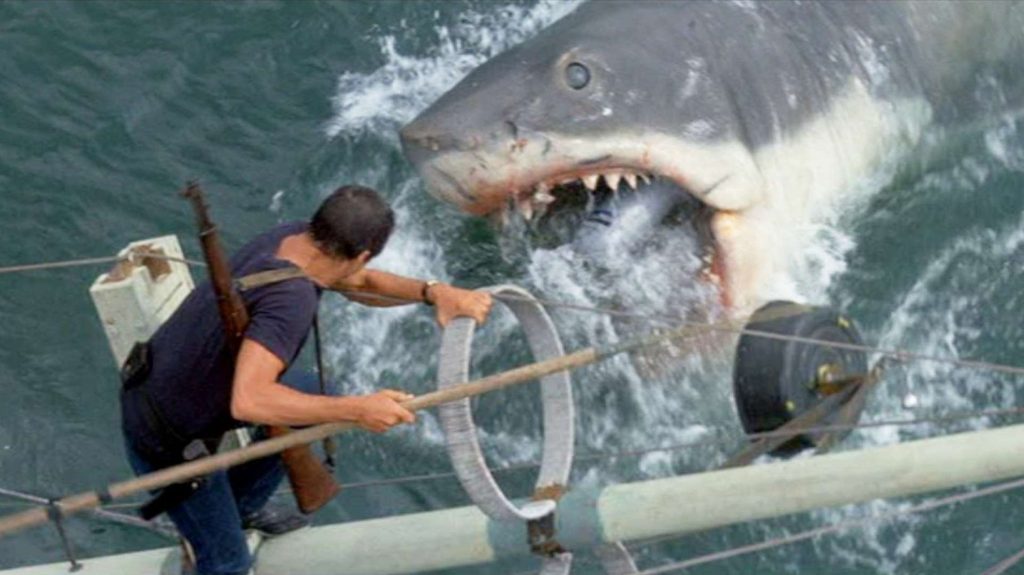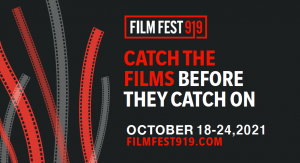By Dominick Ferrara
With a known killer claiming lives, some people work to keep beaches closed in an effort to save lives, while others push for them to remain open, putting the economic boon provided by the Fourth of July weekend before the hundreds, if not thousands, of lives that could be lost.
I’m talking about both current American politics in the age of COVID-19 and the plot Steven Spielberg’s Jaws, which recently celebrated its 45th anniversary.
The film’s antagonist, a man-eating Great White Shark, has always been a metaphor, but Spielberg could never have imagined how well it would apply to a pandemic-stricken American society in 2020.
Despite its age, few films feel timelier in the midst of this pandemic than Jaws, a film that captures America’s current political climate in an eerily prescient way and has a better understanding of America than most films.
The immediate concern for Mayor Larry Vaughn (Murray Hamilton) when informed of the first shark attack was not the lives of Chrissie (Susan Backlinie), Alex Kintner (Jeffrey Voorhees) or the lives could be lost in the future, but rather for the business owners of Amity who are set to lose the majority of their income due to the shark attacks.
When Vaughn chose to open the beaches for the Fourth of July in a shortsighted decision, he allowed another shark attack to occur, one that could permanently damage the reputation of Amity as a summer destination. The chase for short-term dollars was so important that future income could be affected.
A similar phenomenon is occurring across the country, with COVID-19 cases spiking in states that reopened quickly. There are people similar to Vaughn in power across the country. When viewers see characters in cinema male such choices, they understand the character to be an antagonist of sorts. But when real-life politicians make similar decisions, they are often embraced, not seen in the same light as Vaughn.
In fact, Boris Johnson, the prime minister of the United Kingdom and former mayor of London, referred to Vaughn in 2006 as “the real hero of Jaws,” perhaps providing insight into how the United Kingdom initially handled the pandemic. Johnson himself would later test positive for COVID-19.
Like many politicians during this crisis, Vaughn did not change his line of thinking until after he was personally affected by the boogeyman at hand. Vaughn’s children were on the beach when the shark attacked on the Fourth of July, while Chief Brody’s (Roy Scheider) oldest son is hospitalized due to actions that he vehemently opposed.
Of course, the economic effects of such closures are felt more in the real world than in the cinema, but there is a disconnect between how people react to the actions of fictional characters and how they react to similar actions in their daily lives.
Perhaps this is due to the physicality of the shark. When there is something tangible to which people can attach their emotions, they tend to react in a different way than they would to something invisible.
When the shark is roaming the waters of Amity, citizens and tourists alike are afraid to be the next victim. Knowing that there’s something in the water that could kill them, they make the conscious decision to stay away from the water, instead of lounging in the sand as far away from the waves as possible until Vaughn urges them to get in the water. Once the shark is killed, everything returns to normal, the water will once again become a haven for play as if nothing ever happened on those beaches.
What we have seen in the case of an invisible killer, such as COVID-19, is a different reaction. People desperate to return to their favorite recreational activities are doing so, not showing the sort of fear they would if they were set to visit shark-infested waters. Crowds have even returned to lounge on beaches, not considering the metaphorical shark that could turn them into the next Chrissie or Alex Kintner without even realizing it.
The film also shows a great understanding of how Americans react to a temporary change to their traditions or lifestyle. Whether the change is caused by a giant man-eating shark or a 3 1/2″ x 7″ piece of cloth over their faces, the reaction is similarly furious. Amity townsfolk rebel against a beach closure, even when Vaughn alters his deal with Brody to make the closure just 24 hours long because it’s unfamiliar territory for them, an inconvenience that threatens their own traditions and views of American Independence Day.
Making matters worse is that the weekend in question is the Fourth of July weekend, an annual symbol of Americana marked by baseball, hot dogs and swimming. When one element is taken away for safety precautions, the people of Amity’s focus remains on what they can’t do, not the other activities that they can still participate in to celebrate the day.
The same has been the case during the COVID-19 pandemic. Instead of focusing on the endless entertainment options available at home, including ones that support local businesses, people have focused on what’s not available to them. They’d rather be in Amity’s shark-infested waters than experience everything else the town has to offer.
Watching Jaws in the midst of a pandemic is an eye-opening experience. The crowds on the ferry and on the beach feel like relics of a world we may never truly return to, one unaffected by the effects of COVID-19. Vaughn is no longer a caricature of a politician, as he has been for 45 years, but is instead an inspiration for American politicians across the country and world. The reactions of Amity’s townsfolk and tourists towards beach closures are no longer unbelievable, as they instead are the reactions I see below every COVID-19-related tweet I click on.
Despite its age, no film has better captured modern-day, pandemic-era America than Jaws. Forty-five years later, perhaps we still need to learn the film’s lessons. After all, a shark is attacking us and people are still fighting to keep the beaches open on the Fourth of July.



